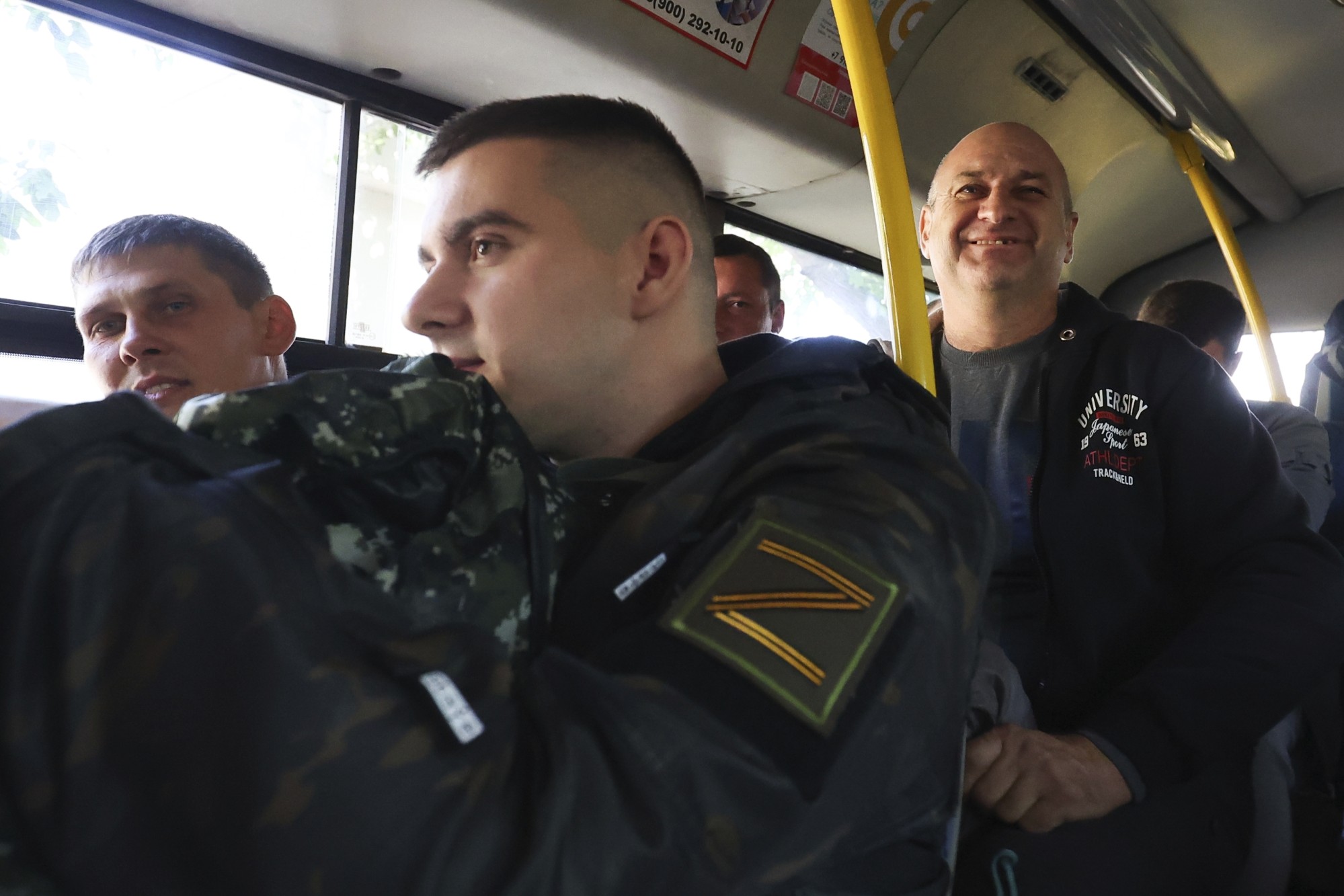
Ukraine war: Russian exodus grows amid fears Putin may restrict borders
- Concerns grow in Russia that Vladimir Putin will shut borders to prevent draft-age men from leaving
- Defence officials say 300,000 more Russians will called up to serve in the mobilisation campaign
Russian men and their families flooded to the border over the weekend as speculation grew that the Kremlin may bar mobilisation-eligible men from leaving the country.
Witnesses reported hours-long lines at the main airport in Moscow and at land crossings into Kazakhstan and Georgia as reports spread that those subject to the call-up may be banned from leaving as soon as this week.
The government sought to assure people that the rules of the “partial” mobilisation that President Vladimir Putin declared September 21 would be enforced after stories of ailing, old or otherwise exempt people being conscripted went viral on social media.
Putin late on Saturday decreed a deferral for some students at state vocational schools and universities, after the Defence Ministry’s assurances failed to calm the public.
Vyacheslav Volodin, the speaker of the lower house of parliament, on Sunday promised an “individual” approach to each complaint received, reiterating assurances from some regional governors.
But the Federal Security Service, or FSB, has begun stopping men from leaving the country on the orders of military commissariats, Russian lawyer Pavel Chikov, who advises on conscription cases, said in his Telegram channel. He posted photos of two notices handed out at different crossings on the border with Kazakhstan.
Video shows head of Wagner mercenary group recruiting at Russian prison
Similar reports of an imminent border closure circulated in the days after Putin ordered his troops to invade Ukraine in February, though no such restrictions were imposed then.
Small, scattered protests against Putin’s mobilisation have broken out across the country. Police detained about 828 people in 35 cities at protests as of Sunday evening, according to the OVD-Info monitoring group.
In Dagestan, police fired guns in the air to disperse a rally, according to a video Kommersant newspaper posted in its Telegram channel.
Crossings at Finland’s eastern land border doubled in the week to Friday to 7,700, according to figures published by the Finnish Border Guard. By Saturday, Russian arrivals had reached 8,572, with departures also climbing to 4,199.
In Uralsk, Kazakhstan, the CinemaPark movie theatre offered Russians driving across the border a place to stay after the influx left many arrivals searching for housing and pushed up cost, according to the Kazakh24.info news website.
The line at the land border in Georgia was about 10km (six miles) long and took about 24 hours, according to Daniil, a 35-year-old software programmer, who rented a van in Vladikavkaz with friends, paying 10,000 roubles (US$170) each.
“I don’t believe that this is a partial mobilisation,” he said in the central square in the capital, Tbilisi. Though he never served, he said: “I have this military card that says that I am a soldier but ineligible by age.
“But yes, I know that we are all reserves, and one day this moment would come, so that’s why I chose to come here. Their tactic is simply to lower the panic and say it’s a partial mobilisation.”
In Russia, many expressed outrage after seeing – sometimes absurd – cases of authorities summoning people unfit for service.
Authorities in the southwestern Russian region of Volgograd sent a 63-year-old diabetic ex-military staffer to training camp, despite poor health and cerebral issues.

The 63-year-old came back home Friday night, according to Russian state agency RIA Novosti.
In the same region, 58-year-old school director Alexander Faltin received a call-up order despite having no military experience.
His daughter posted a video on social media that became viral. He was allowed home after his documents were reviewed, according to RIA.
The errors were painted as isolated cases.
The Ukrainian Defence Ministry on Sunday ridiculed Moscow’s partial mobilisation, posting on Twitter a mash-up of social media videos of Russian police beating and arresting men protesting the call-up.
“Russia still has remnants of a professional army” that the Ukrainian army “hasn’t yet destroyed,” the Ukrainian Defence Ministry said in an English-language tweet, referring to this month’s rout of Russian forces from much of the northeastern Kharkiv region. “Looks like we’ll be ‘demobilising’ these Russians ahead of schedule.”
In Moscow, Kremlin spokesman Dmitry Peskov told reporters on Friday that fake statements on social media were in part to blame for the reaction to the announcement.
“There is now no shortage of explanations and there are opportunities to ask questions,” Peskov said. “We have to look calmly, thoughtfully and objectively at the provocative, huge number of fake statements on social media and not give in to these provocative actions.”
Officials say 300,000 more Russians will called up to serve in the mobilisation campaign.
Bloomberg, Reuters and Agence France-Presse

